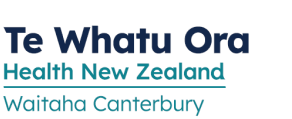What does it do?
Octreotide is used to treat acromegaly, by reducing the amount of growth hormone in your body. It is also used to treat the symptoms of certain types of cancers or tumours, and sometimes other conditions.
Before you start
- Tell your doctor if you have diabetes, vitamin B12 deficiency, or gallstones.
- Tell your doctor if you are pregnant or breastfeeding. If you plan to get pregnant, or find you are pregnant, discuss this with your doctor. Women should use reliable contraception while taking octreotide.
How is it given?
Octreotide is given as an injection or infusion under the skin or into a vein.
What if you forget a dose?
If it is nearly time for your next dose, skip the missed dose and inject your next dose at the usual time. Otherwise, inject the missed dose as soon as possible. Do not inject two doses at the same time.
Can you take other medicines?
Tell your pharmacist or doctor about all medicines or treatments that you may be taking, including vitamins, herbal products or recreational drugs.
What side effects might you notice?
| Side Effects | Recommended action |
|---|---|
|
Irregular heartbeat, fainting, lightheaded Severe stomach pain, nausea |
Tell your doctor immediately |
|
Low blood sugar: symptoms may include sweating, trembling, feeling anxious or irritable Peeing more often, feeling thirsty |
Tell your doctor |
|
Headache Hair loss or thinning Tiredness or weakness Stomach upset, farting, oily bowel motions Irritation or pain at injection site |
Tell your doctor if troublesome |
If you notice any other effects, discuss them with your doctor or pharmacist.
Other information:
- You will need regular blood tests while taking octreotide to check if it is causing problems with your liver or thyroid.
- Store octreotide in the fridge. Keep it in the box to protect from light.
This leaflet contains important, but not all, information about this medicine.
Prepared by the MyMedicines Committee at Christchurch Hospital, Te Whatu Ora - Waitaha, New Zealand. March 2023
For more general information about this sheet and its contents, see: What does a My Medicines sheet cover?
Te Reo Māori
Te Reo Māori information sheets supported by Health Quality and Safety Commission New Zealand
Web links for this sheet in different formats
Click on buttons to copy web addresses for this leaflet:
If your browser does not automatically copy these links use its copy command instead.
About My Medicines
My Medicines Patient Information Leaflets (PILs) contain important, but not all, information about the medicines they describe.
For more information about the sheets, see: What does a My Medicines sheet cover?
My Medicines is developed by a team at Te Whatu Ora – Waitaha. Our team is made up of doctors, pharmacists, and a non-medical person to help us keep to plain language. We also discuss our information with specialist health professionals or groups when needed

